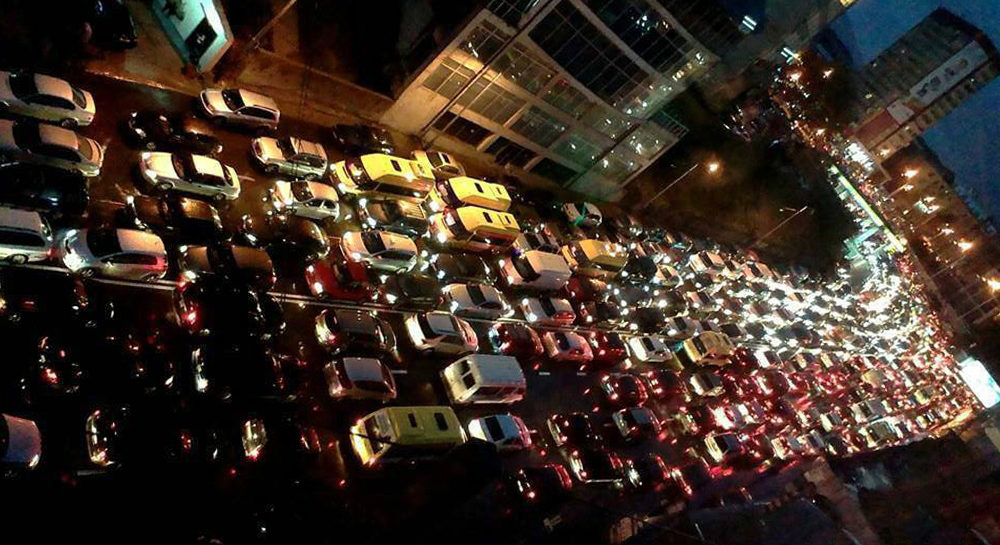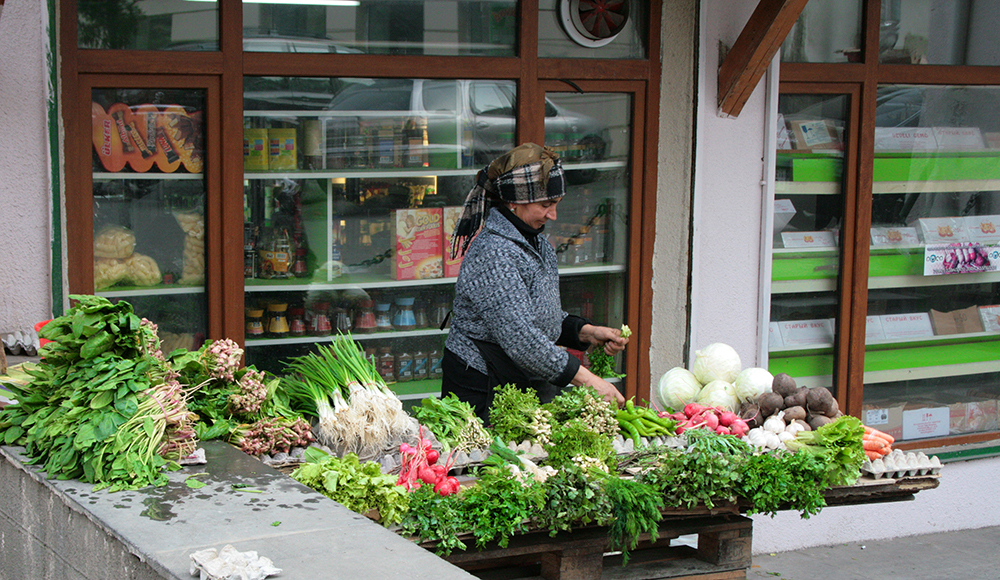Georgia: 3 simple things that are poisoning us
1. Air in Tbilisi

The air, that Tbilisi residents breathe, is getting worse day by day due to increasing number of vehicles. About one third of the country’s overall population and a little bit less than half of the entire number of motor vehicles – 40%, have concentrated in Tbilisi. What aggravates the aforesaid is that technical condition of vehicles (most of them rather old and battered, used cars from Europe and America) is not properly controlled and the petrol quality is far from satisfactory.
Where does it lead to?
It leads, for example, to the respiratory system diseases; general weakness of the immune system. If this air is breathed regularly, the harmful substances could not be removed from organism but would rather be accumulated in it and result in very deplorable consequences.
How to deal with it?
The most efficient will be if we all get onto bicycles. However, Georgian Environment Ministry tries to be realistic, laying emphasis on the petroleum quality control. This is so far the only thing they can control in the country, that gladly abolished vehicle maintenance checkup some 10 years ago. Last year, petroleum and diesel quality norms in Georgia reached the European ones and it is planned to put them on a par with the EU standards in two years. However, it does not mean that these norms will be observed. Since 2016, the ecologists are expected to mark petrol filling stations in order to identify their compliance with the relevant norms, so that at least we know, what we are filling up.
2. Waste
In many settlements across Georgia the household waste is treated as follows: one goes out with a waste-bin, reaches, let’s say, a ravine – and throws the waste-bin over it. There may be often a river bank instead of a ravine.
Where does it lead to?
These are the so-called illegal, unauthorized dumps. For you to assess the scale of this disaster, we will tell the number of authorized ones in Georgia: there are the total of 63 dumps for all the cities, towns and villages. And only two of them – in Tbilisi and Gardabani – meet the international standards. Georgia is still lacking the mechanisms of state control over waste management; there is no legislation that will allow safe and effective waste disposal. This field, in general, is developed in Georgia not much better than 200 years ago.
People usually try to burn the waste, dumped in ravines. In other words, the population residing right there, literally at a walking distance from an improvised waste dump, regularly inhale toxic smoke. Not only does the waste poison human beings, but it also affects animals – both, domestic and wild. Cows and pigs frequently pasture at the waste dumps, whereas at night, it is taken into pieces by foxes and jackals.
It should be added that hazardous waste – for example, used CFL/LED bulbs or broken thermometers (both containing mercury) are thrown out there, which means that they are burnt and inhaled with smoke; or consumed with milk of a cow that pastured in a littered ravine.
How to deal with it?
Updated sanitary landfills are required in all regions. A well-organized system of waste collection and disposal from all settlements is needed. Waste should be sorted or at least divided into hazardous and less hazardous. And there should be merciless fines for throwing litter where not appropriate.
However, several years will be necessary for these elementary measures to be introduced and work efficiently. No matter how surprising it seems, the government is still at the stage of developing the legislation. Though, the construction of a new landfill in Western Georgia is also discussed in parallel. It is hardly a breakthrough, but anyway!
3. Water

Let’s take, for example, Bolnisi district in Kvemo Kartli region of Georgia. There is a favorable climate, fertile land, and, unlike other Georgian provinces, there is a well-developed irrigation system. Therefore, the locals manage to get three crops a year and provide almost the entire Georgia with vegetables and herbs.
And all will be fine and dandy, but the content of heavy metals in the vegetables and herbs from this region goes off the scale. This happens because the local industrial facilities (the champ among them – Bolnisi ore processing plant) are polluting the local rivers – Kazretula and Mashavera. A few years ago, German and Georgian experts conducted a joint study and revealed that at least! 12 and a half kilograms of copper, three and a half kilograms of zinc and 17 grams of cadmium fall on one hectare of agricultural land in Bolnisi region. These figures are ten times higher than conventional norms. However, fruits, vegetables and herbs are still there on the counters.
Where does it lead to?
It leads to the growth of oncological diseases. They have become particularly frequent among residents of the aforesaid described area, and are often the case in some other places as well. Many doctors tend to think that environmental situation in the vicinity of Bolnisi has conditioned increase in the number of patients with liver cancer in Georgia.
How to deal with it?
Modern treatment facilities, detailed analysis of operation of the industrial facilities, as well as introduction of new technologies are required.
Along with mechanical treatment of water (which is rarely the case in Georgia), there is also a need for biological treatment system. And, apparently, we still have to realize that we let our own children drink the water, poisoned with our consent.



















